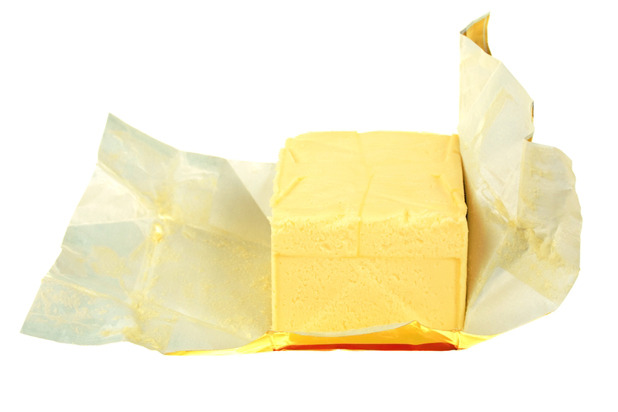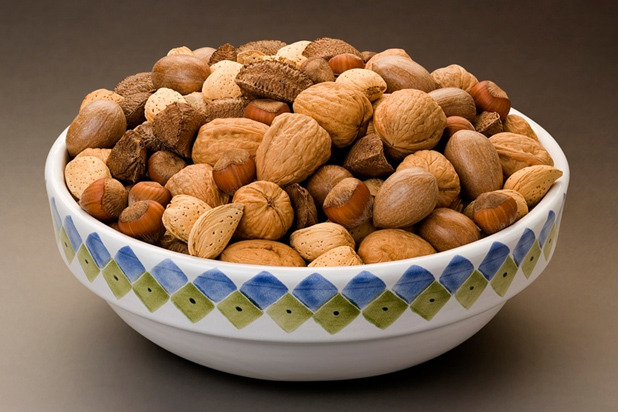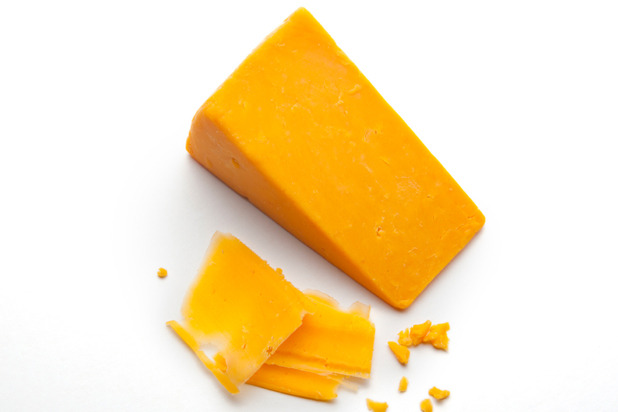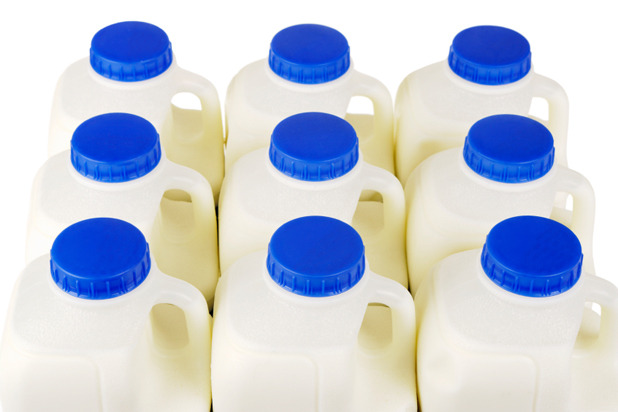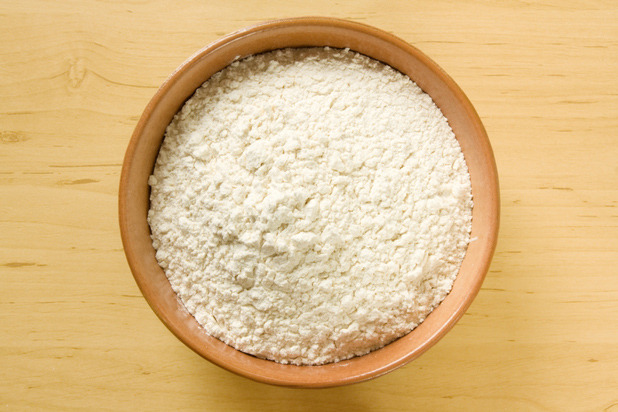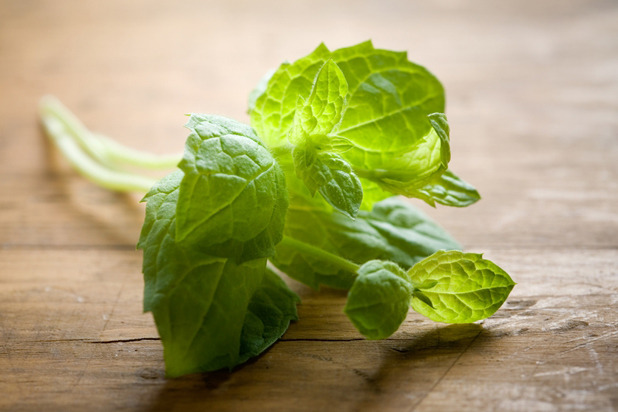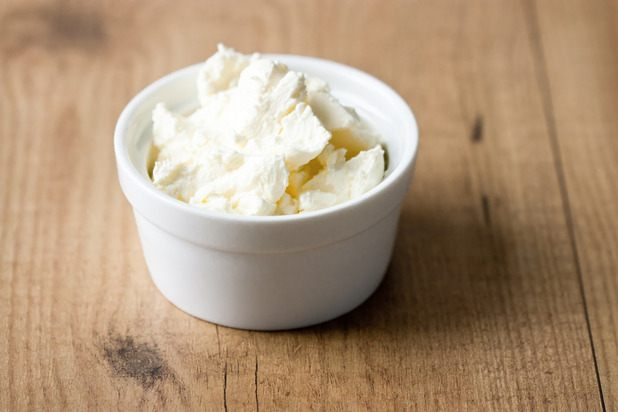10 Foods You Didn't Know You Could Freeze Slideshow
1. Butter
Freezing butter is easy and is especially handy when stocking up for baking season. Simply place butter in its original wrapping inside of an airtight bag or tightly wrapped in foil. When ready, remove the butter from the freezer and thaw overnight in the refrigerator before use. Butter usually lasts for up to four months, though some sources report enjoying butter a year after freezing.
2. Nuts
Frankly, you're nuts if you don't freeze nuts! If you like to keep a variety on hand for various dishes, the freezer will definitely become your new best friend. Nuts, especially unshelled, can quickly go rancid thanks to their high fat content. Heat, moisture, light, and even their proximity to metal can cause nuts to spoil. Store them in a plastic, airtight container. Shelled nuts last for up to eight months in the freezer, but remember — one bad nut can spoil a whole recipe. Be sure to taste before using!
3. Block Cheese
Hosts and hostesses alike live for the easy cheese and cracker plate. So, when blocks of cheese go on sale, feel free to stock up. Cheese can be frozen in its original packaging, but wrap it tightly in plastic wrap or heavy-duty aluminum foil, too. Soft cheese and cheesy spreads will only last one month frozen, so it may only be worth it to freeze the harder cheeses, which will last up to six months. Remember to thaw cheese in the refrigerator overnight before use.
4. Baked Goods
Your freezer was born for baked goods glory. A smart way to prepare ahead of time for a celebration — or a smart way to portion your sweets — you can store all of your beloved goodies in the freezer. After cooling, wrap cookies individually in plastic and place in an airtight container for up to one month.
For bar cookies or brownies, store them unsliced, tightly wrapped in plastic wrap and again in foil for three months. These should be thawed at room temperature. Store-bought breads and muffins should cool completely in the refrigerator and then be placed in the freezer unopened, where they're good for up to two months. Quickly revive these morsels through a brief microwave session. But the fun doesn't stop there — doughs can be frozen and thawed in the refrigerator for later baking.
5. Milk
You can actually freeze milk with few repercussions. Simply pour out a little milk to leave room for expansion and pop it in the freezer. Once you return home, remove from the freezer and thaw in refrigerator for a day or two. Before use, give it a good shake to prevent drinking any separated milk. It's best to freeze milk at its freshest and it shouldn't be kept longer than four to six weeks. But be warned, freezing milk does change the texture and taste somewhat, so it might not be for everyone.
6. Flour
Does your flour come alive after going untouched for some time? Many who don't freeze their flour quickly learn about the evils of weevils that infest it. Freezing flour not only is a smart money-saving practice, it's also necessary for sanitation. Store flour in a food-grade airtight container without its original paper packing since it is so porous. Freeze for 48 hours to kill off insects and place in the refrigerator for constant, proper storage.
7. Pesto
If you're left with an unfathomable amount of basil leaves, put them to good use in bulk batches of pesto. After making your sauce, spoon globs of pesto evenly into ice cube trays and freeze them completely. Once frozen, pop them into a plastic airtight container or bag and store for three months. To use your neatly portioned pesto cubes, let them thaw at room temperature naturally or remove them earlier and thaw in the refrigerator.
8. Herbs
If your naturally green thumb has left you with bushels of herbs, sometimes drying them leaves them tasteless. Freezing them at their freshest is a great way to store moist herbs to retain flavor. Start by washing and pat-drying your leafy herbs. You may want to chop them into desired portions before freezing. On a small tray or cookie sheet, spread the herbs out individually on top of parchment paper and place them covered in the freezer. Once frozen solid, remove the herbs, place them in an airtight plastic bag and pop back into freezer until you are ready to use. You could even spoon herbs into an ice tray and fill it halfway with water. When they're ready, simply plop the herbs in a stew or your next dish. Flavorful herbs such as mint are best with iced tea or even your next chilled cocktail.
9. Cream Cheese and Sour Cream
As far as cream cheese is concerned, freezing has its limitations. If you're planning to spread cream cheese on your morning bagel, then skip the freezing, since when thawed it will change consistency. However, if you're baking or cooking, cream cheese retains its flavor and purpose just fine.
Sour cream has generally the same principle: easy to freeze, great for cooking or baking, but it will change consistency. Whipping sour cream before freezing helps to distribute moisture, and doing so after thawing in the refrigerator — and adding two spoonfuls of cornstarch — will help it return to its creamy form.
10. Jam
Hankering for sweet summer jam in the dead of winter? Freezing your homemade delights is totally possible. Simply fill your thick-glassed mason jar and stick it in! (Jam doesn't expand much in the freezer.) To thaw, let it sit overnight in the refrigerator. Enjoy your jam within one year, as after a year it will start to lose flavor.
